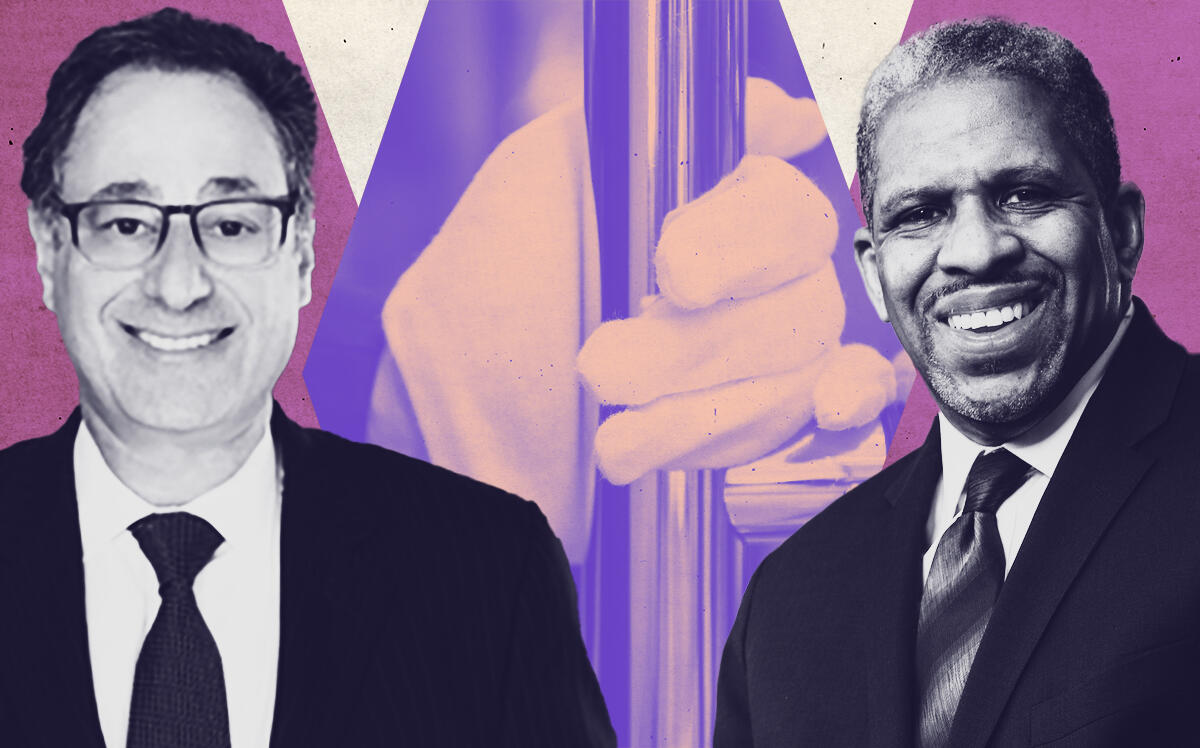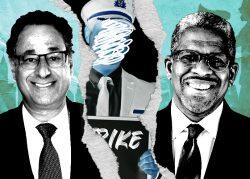 Doormen strike averted: Union reaches agreement over wages
Doormen strike averted: Union reaches agreement over wages
Trending
Deal averts strike by doormen, resi building workers
32BJ, Realty Advisory Board on Labor Relations announce contract deal

New Yorkers in doorman buildings won’t have to get their white gloves dirty.
On the cusp of what would have been their first strike in more than 30 years, residential building workers reached a tentative deal with owners for a new contract.
Translated for residents of luxury apartment buildings: You will not have to open the lobby door or take out your trash.
On Tuesday afternoon, 32BJ SEIU, which represents 32,000 residential building workers, and the Realty Advisory Board on Labor Relations announced a tentative agreement which includes a 12.6 percent wage increase for building employees over the next four years and does not require workers to contribute to their health care benefits.
According to the RAB, which represents building owners, the increase brings the total wages for a “typical” doorman to $62,000 by the end of the contract. Workers will also receive a one-time $3,000 bonus.
Read more
 Doormen strike averted: Union reaches agreement over wages
Doormen strike averted: Union reaches agreement over wages
 Negotiating in a pandemic: 32BJ, landlords reach reopening deal
Negotiating in a pandemic: 32BJ, landlords reach reopening deal
 Doormen authorize strike ahead of agreement expiration
Doormen authorize strike ahead of agreement expiration
The deal follows weeks of uncertainty and mounting concern that doormen and other building employees would strike for the first time since 1991. The union balked at proposals by owners and management to require workers to contribute to their health insurance, which has been entirely covered by employers.
The contract was slated to expire Wednesday, and a strike would have affected more than 3,000 buildings and 555,000 apartments across the city.
The contract, which 32BJ members are expected to ratify, represents a victory for the union, which had also fought off proposals to cut paid sick leave and vacation time, according to The City.
The deal leaves those benefits intact, though it does require the creation of a labor management committee tasked with finding savings on hospital costs, with a goal of saving at least $100 million a year, according to RAB.
This is the first post-pandemic deal reached between the union and owner group. Over the past two years, the parties have agreed upon several contract and benefit extensions.




